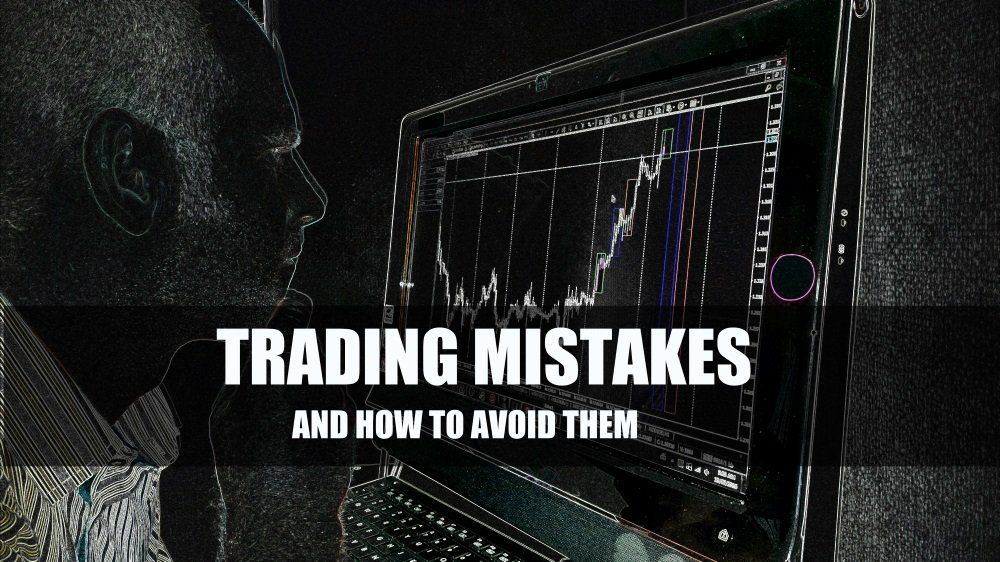The Harsh Reality - Why Most Retail Traders Fail and How to Triumph over Failure

Find the Way out of the Harsh Reality of Forex Trading!
The foreign exchange market, commonly known as Forex, offers tremendous opportunities for retail traders to participate in the global financial market. Forex trading, a thrilling pursuit promising financial freedom, has captivated the hearts and minds of countless individuals. Yet, for the majority, the dream of prosperity remains elusive. It is no secret that the majority of retail forex traders experience failure. We will delve into the reasons why most retail forex traders fail and explore strategies to overcome the staggering odds. Prepare to confront the harsh realities, but fear not, for within this brief article are some major keys for traders to increase their chances and transform failure into success.
The Pitfalls of Retail Forex Trading
In the quest for quick riches, many retail forex traders find themselves ensnared in a web of pitfalls. Emotional decision-making, no knowledge, lack of discipline, overtrading, along with poor risk management and unrealistic expectations serve as the foundation for the downfall of many traders. The allure of easy money blinds them to the complexities and intricacies of the forex market, leading to a host of critical mistakes.
First and foremost, emotional decision-making grips traders tightly, causing them to abandon rationality. Fear and greed become their guiding principles, clouding judgment and leading to impulsive actions that amplify losses. Moreover, the inability to control emotions hinders the ability to stick to a well-thought-out trading plan, compounding the devastation. Emotions often cloud judgment and lead to poor decision-making in forex trading. Greed can drive traders to take excessive risks, aiming for higher profits, while fear can prevent them from taking necessary risks, resulting in missed opportunities. Impatience can cause traders to enter trades prematurely or exit profitable positions too soon.
Secondly, the lack of proper education and understanding of the forex market is a common pitfall for retail traders. Without a solid foundation in fundamental and technical analysis, traders may struggle to identify profitable trade setups and make informed decisions.
Thirdly, overtrading is a common mistake that arises from the desire to constantly be in the market. It leads to impulsive trading decisions based on short-term fluctuations and can
exhaust traders both mentally and financially. A disciplined approach is crucial in forex trading and most retail traders lack great discipline.
And lastly, inadequate risk management is a significant reason for failure in forex trading. Without proper risk management strategies, traders expose themselves to unnecessary risks that can lead to substantial losses. Risk management involves determining an acceptable level of risk for each trade, setting appropriate stop-loss orders to limit potential losses, and calculating position sizes based on risk tolerance. Without a robust risk management strategy, traders are gambling away their hard-earned capital. Lack of patience and the constant search for instant gratification push traders towards reckless trades and unrealistic expectations, causing catastrophic losses.
Overcoming Failure: The Path to Success
Though the path may seem treacherous, overcoming failure in retail forex trading is not an insurmountable task. With dedication, education, and a resolute mindset, traders can rise above the masses and forge a path to success.
To overcome failure in forex trading, traders should prioritize education and continuous learning. They can start by familiarizing themselves with basic concepts such as currency pairs, leverage, and margin. Understanding fundamental analysis, which involves analyzing economic indicators and news events, and technical analysis, which focuses on chart patterns and indicators, is essential. Various online resources, books, and reputable educational platforms offer comprehensive courses on forex trading. Traders can take advantage of these resources to enhance their knowledge and skills, and stay updated with the latest market trends and strategies.
Developing a well-defined trading plan is crucial for consistent success in forex trading. The plan should outline specific trading goals, such as monthly or yearly profit targets, as well as risk management strategies. It should clearly define the trader's preferred trading style, whether it's scalping, day trading, or swing trading. The plan should include guidelines for entry and exit points, incorporating technical indicators, chart patterns, or a combination of both. Money management rules, including the maximum percentage of capital to risk per trade, should also be specified. Regularly reviewing and updating the trading plan based on market conditions and personal experiences is essential for continuous improvement.
Successful forex traders prioritize risk management as a fundamental aspect of their trading strategy. Determining risk tolerance is a critical step in managing risk effectively. Traders should assess their financial situation, their ability to withstand potential losses, and their emotional capacity to handle market fluctuations. Setting appropriate stop-loss orders for each trade helps limit losses if the market moves against expectations. Additionally, position sizing should be based on a calculated risk-reward ratio, ensuring that potential profits outweigh potential losses. By incorporating risk management into their trading routine, traders can protect their capital and sustain long-term profitability.
Patience and discipline, the antidote to failure, must be cultivated and cherished. Patience and discipline are invaluable traits for forex traders. Patience involves waiting high-probability trade setups that align with one's trading plan. Traders should avoid the temptation to trade frequently and understand that not every market condition is suitable for trading. Discipline comes from sticking to the predetermined trading plan and following established rules and strategies. It requires avoiding impulsive decisions driven by emotions or short-term market fluctuations. Practicing patience and discipline enables traders to make rational decisions, capitalize on favorable opportunities, and avoid unnecessary risks.
Emotions, once wild and untamed, can be tamed and controlled. Cultivate self-awareness and mindfulness to recognize and manage emotional triggers. Practice patience, for it is the key to preserving capital and avoiding impulsive decisions. Surround yourself with a supportive community of like-minded traders who can provide guidance and encouragement in moments of doubt.
The Final Step: Persistence and Resilience
In the world of retail forex trading, success does not come overnight. It demands persistence and resilience in the face of adversity. Embrace failure as a stepping stone to success, for it is through setbacks that we learn and grow. Review your trades, identify mistakes, and adapt your strategies accordingly. Celebrate small victories and remain steadfast in your pursuit of excellence.
Seeking guidance from experienced traders and engaging with trading communities can greatly enhance a trader's learning process. Mentorship programs provide a valuable opportunity to learn from seasoned professionals who have already navigated the challenges of forex trading. Interacting with like-minded traders in online forums, social media groups, or local meetups fosters a supportive environment where traders can share experiences, exchange ideas, and provide feedback. Joining trading communities can also expose traders to different perspectives and trading styles, encouraging continuous learning and growth.
Setting realistic expectations is crucial for long-term success in forex trading. While significant profits are possible, it is essential to recognize that consistent profitability requires time, effort, and experience. Forex trading is not a get-rich-quick scheme. Traders should approach the market with a focus on continuous improvement and a willingness to learn from both successes and failures. Unrealistic expectations often lead to impulsive and risky trading behavior, ultimately increasing the chances of failure. By maintaining realistic expectations, traders can reduce pressure, make rational decisions, and stay committed to their long-term trading goals.
Remember, education is the cornerstone of success. Armed with knowledge about fundamental and technical analysis, risk management, and trading psychology, traders empower themselves to make informed decisions. Never underestimate the power of continuous learning in the forex market.
In closing, the failure rate among retail forex traders can be attributed to factors such as a lack of education, emotional decision-making, inadequate risk management, and a lack of discipline. By addressing these issues through education, developing a trading plan, embracing risk management strategies, practicing patience and discipline, utilizing demo accounts, seeking mentorship, and maintaining realistic expectations, traders can significantly improve their chances of success. Forex trading requires continuous learning, adaptation, and a disciplined approach. Maintaining realistic expectations is crucial for long-term success. Forex trading is not a guaranteed path to instant riches. Setting realistic expectations and recognizing that consistent profitability takes time and effort can help traders avoid impulsive and risky behavior.
The journey of a forex trader is a marathon, not a sprint. Stay committed, motivated, and focused on your goals. Surround yourself with positivity, and believe in your abilities. With time, experience, and the lessons learned from failure, you will emerge stronger, wiser, and ready to conquer the forex market. With the right mindset and strategies, traders can overcome failure and ultimately achieve their trading goals and long-term profitability in the forex market.










